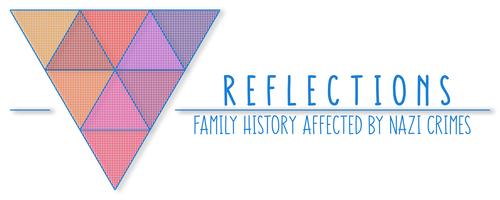
Marianne Rüsz’s father Børge Emil Pedersen was imprisoned in the Neuengamme concentration camp and the Versen satellite camp. She became an active memeber of the Danish Neuengamme Association to fulfil the promise that her father and other prisoners who survived made to their fallen comrades: “They shall not be forgotten”.
How did you learn about your father’s story?
My father always talked about his time in concentration camps while he was alive. From the time I was a schoolchild, I had to learn important dates in my father’s life and his prisoner number. Whenever we were somewhere, there would be a situation that prompted my father to say: “Have I ever told you about the time I was in a concentration camp in Germany during the war, where I experienced…”
What influence does your family history have on the person you are today?
I have been a member of two Danish associations of former prisoners in Denmark and became the chairman of one of them in 2012.
I read a lot about the time during the war in Denmark and seek further information about numerous topics I come across in the process. I am very open about my father’s time in the concentration camp, and I express my opinion on similar topics regarding current world affairs when they arise.
What elements of your family history and values will you pass on to the next generation(s)?
My son, who is now 37 years old, has also been acquainted with my father’s story. We took him to Neuengamme when he was 12 years old and he vividly remembers me telling my father’s story. He has mentioned some of it to his eldest son who is 8.
We are planning to take him to the memorial service at Mindelunden on Christmas Eve. Before that, we’ll familiarize him with the history as he represents the third generation.
How did you come to be involved in the Danish Amicale KZ Neuengamme? What does your involvement mean to you?
A member of my association (Versen prisoner) said that I should join the national association at the same time as he told the chairman of the national organization about me.
It is important to me that this part of Danish history is not forgotten. It is particularly important to fulfil the promise that the surviving prisoners made to their fallen comrades: “They shall not be forgotten!”

